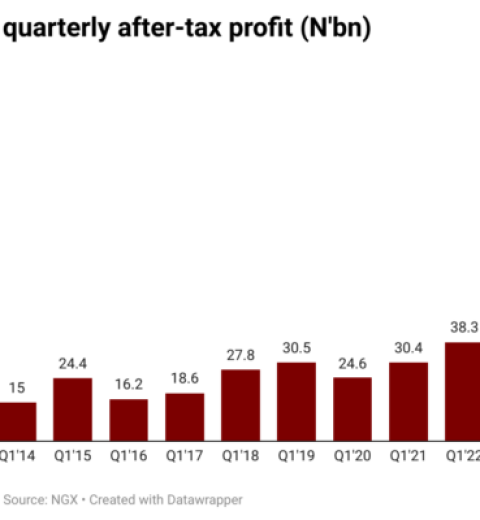The discontinuation of the subsidy on Premium Motor Spirit, commonly referred to as petrol, resulted in a rise in the statutory revenue allocations from the Federation Account, which were shared among the three tiers of government in 2023, reaching N10.14 trillion.
According to data released on Tuesday by the Nigeria Extractive Industries Transparency Initiative (NEITI) in its latest report on the Federation Account revenue allocations for the year 2023, the amount distributed among the federal, state, and local governments increased by N1.93 trillion compared to the previous year, 2022.
NEITI attributed this surge to the removal of the petrol subsidy by President Bola Tinubu in May 2023. This move was announced during his inaugural address on May 29, 2023, where he declared the end of fuel subsidy.
Tinubu’s declaration was promptly implemented by the Nigerian National Petroleum Company Limited the following day, leading to a spike in petrol prices from N198 per litre to approximately N500 per litre.
The price of the commodity surged once more within a month to N617 per litre at filling stations operated by NNPCL, while other marketers sold the product for prices ranging between N660 and N700 per litre, depending on the location of purchase.
In response to the latest report, Dr. Ogbonnaya Orji, the Executive Secretary of NEITI, announced the release of the report at the NEITI House in Abuja. He stated that NEITI embarked on the NEITI FAAC Quarterly Review to improve public understanding of Federation Account allocations and disbursements as published by the government.
Orji elaborated, “The ultimate objective of this disclosure is to enhance knowledge, awareness, and promote public accountability of all institutions involved in public finance management.”
A detailed breakdown of the revenue receipts revealed that the Federal Government received N3.99 trillion, constituting 39.37 percent of the total allocation. The 36 states received N3.585 trillion, representing 35.34 percent, while the 774 Local Government councils of the Federation shared N2.56 trillion, equivalent to 25.28 percent.
Further analysis of the N10.143 trillion disbursements in 2023 indicated an increase of N1.934 trillion or 23.56 percent compared to the disbursement of N8.209 trillion shared in the preceding year of 2022.
The review attributed this increase to enhanced revenue remittances to the Federation Account following the removal of the petrol subsidy and the adjustment of the exchange rate by the new administration.
The report underscored that while total revenues distributed from the Federation Account saw an overall increase of 23.56 percent in 2023, the increase allocated to each tier of government varied significantly, primarily due to the nature of the revenue streams contributing to the inflows into the Federation Account.
According to the NEITI Quarterly Review of 2023 FAAC allocations, the federal, state, and local governments collectively received N1.934 trillion more than the amount shared in 2022.
The first quarter of 2023 witnessed an increase of N579.71 billion (33.19 percent) compared to the first quarter of 2022. The second quarter saw an increase of 10.32 percent, the third quarter surged by 27.49 percent, while the fourth quarter experienced a growth of 23.42 percent.

The Federal Government’s portion increased by N574.21 billion (16.79 percent) from the N3.42 trillion it received in 2022 to N3.99 trillion in 2023.
State governments collectively shared N3.59 trillion in 2023 compared to the N2.76 trillion they received in 2022, indicating a significant increase of 29.99 percent. Similarly, Local Government councils received N2.57 trillion in 2023 compared to N2.032 trillion in 2022, reflecting a rise of 26.22 percent.
While the total distributed revenue from the Federation Account saw an overall increase of 23.56 percent in 2023, the growth in allocations varied for each tier of government, primarily due to the nature of the revenue items contributing to the inflows into the Federation Account.
During the same period (2023), states and Local Governments experienced increases in their allocations by 29.99 percent and 26.22 percent, respectively. However, the increase in allocation to the Federal Government was 16.79 percent.
A breakdown of the allocations on a state-by-state basis revealed that Delta State received the largest share of N402.26 billion (gross), which includes the state’s portion of oil and gas derivation revenue.
Rivers State trailed closely behind Delta, securing a total allocation of N398.53 billion. Akwa-Ibom State ranked third, obtaining the third largest allocation of N293.58 billion. Conversely, Nasarawa State received the smallest allocation, totaling N73.32 billion, with Ebonyi and Ekiti states closely following with allocations of N73.91 billion and N74.04 billion, respectively.
The analysis noted that the top five states in terms of allocation during the period in review are all prominent oil-producing states in the nation.
Nine states received a 13 percent allocation from the proceeds of mineral revenue, as stipulated for mineral-producing states. This allocation, known as derivation revenue, remains a significant source of income for states such as Delta, Akwa Ibom, Anambra, and Rivers.
In particular, the derivation revenues of Delta, Akwa Ibom, and Bayelsa were notably high, reaching 161.47 percent, 141.25 percent, and 127.89 percent, respectively, surpassing their statutory revenues.
During the period, Rivers State’s derivation revenue stood at 74.15 percent. It’s worth noting that the remaining five oil-producing states recorded lower derivation revenue compared to the aforementioned four.
For instance, Ondo State received 27.71 percent, Edo received 30.04 percent, while Abia, Anambra, and Imo had derivation revenues of approximately 20 percent or less.
The NEITI report highlighted that states producing solid minerals did not receive derivation revenues during the final quarter of the previous year. This was due to the necessity of allowing the revenues to accumulate over time before distribution can take place.
Regarding direct deductions from states, Delta State incurred the most substantial debt deductions in 2023. With a total deduction of N12.97 billion, Delta’s debt deductions exceeded those of Bauchi State, the second highest in 2023, by N282 million. In contrast, Lagos State recorded the lowest cumulative debt deductions, amounting to N370 million.
The report emphasized that the decrease in the debt burden was primarily attributed to the rise in the size of allocations from the Federation Account rather than a reduction in the debt size.
“The noticeable similarity in the size of debts and their sustainability charts suggests that states’ borrowing decisions are heavily influenced by the magnitude of their allocations from the Federation Account and anticipated future earnings.
“While this trend indicates prudent fiscal decision-making by the states, it could also lead to an escalation in their current borrowing levels as revenues from Federation Account allocations begin to rise,” NEITI stated in its report.
Other significant findings of the report indicated that revenue remittances to the Federation Account exhibited substantial fluctuations on a monthly basis due to corresponding variations in oil and gas revenue.
Oil and gas revenues were reflective of crude oil prices and Nigeria’s production output, which in turn were significantly impacted by crude oil theft and acts of sabotage.
The report highlighted that the primary sources of revenue inflows to the Federation Account/contributors to the Federation Account in 2023 included the Nigeria Upstream Petroleum Regulatory Commission, Federal Inland Revenue Service, and Nigeria Customs Service, which generated earnings from various revenue streams.
These revenue streams encompassed oil and gas royalties, petroleum profit tax, company income tax, value-added tax, import duties, and excise duties.
Additionally, the report disclosed that revenue from the solid minerals sector was minimal, underscoring the sector’s underperformance. The NEITI Quarterly Review offered key recommendations aimed at improving the performance of the Federation Account.
“Government, encompassing both the National Assembly and the Executive, should adopt more conservative estimates for crude oil prices and output to enhance budgetary performance, mitigate budget deficits and borrowing, and reinforce fiscal stability.
“NEITI reiterated its previous recommendations for the Federal Government to prioritize ongoing efforts toward economic diversification and investment, particularly in improving power generation. This would stimulate growth across small, medium, and large businesses, foster local production, diminish import reliance, and reduce dependence on oil revenues,” it stated.
NEITI’s FAAC Quarterly Reviews also underscored the imperative for states to collaborate with the Federal Government in addressing insecurity in rural communities, particularly those where agro-based businesses are prevalent. It emphasized the necessity of focusing on internally generated revenues through innovative approaches and citizen-centered leadership.




